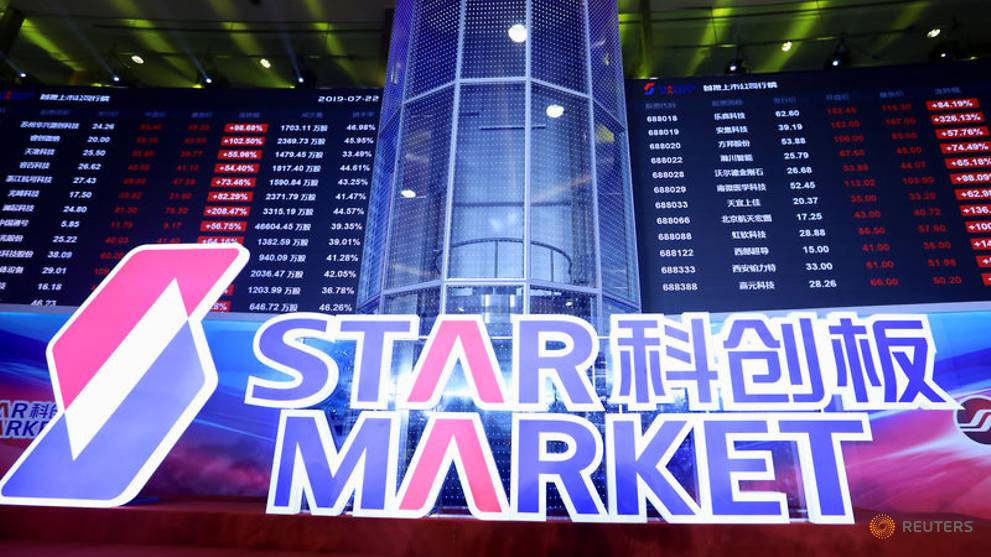
Commentary: China's tensions could boost Hong Kong's stock exchange
by Henny SenderHKEX’s next chief will have to manage a tricky relationship with Beijing, says the Financial Times’ Henny Sender.
HONG KONG: When Charles Li became chief executive of Hong Kong’s stock exchange a decade ago, it was after fighting off many contenders for the position.
As HKEX’s board begins the search to replace its widely respected leader next year, the list of potential candidates is dishearteningly short.
The main requirements have not changed much in the past 10 years. The candidate must be capable of being the quintessential Hong Kong figure — living simultaneously in a Chinese and an international world. Mr Li, a mainlander who previously worked at institutions including JPMorgan China and Merrill Lynch China, personified that mix.
Straddling both worlds is a challenge — more so today than it was nearly 30 years ago, when the H shares of mainland companies first listed in Hong Kong.
THE NEW LAW MAY NOT BE BAD NEWS
This month, Beijing’s planned imposition of a national security law has sparked renewed protests in the territory. But for a variety of reasons, the prospects for the exchange itself are brighter today than they might at first seem.
“The worry last year for a mainland investor was that Hong Kong would be punished through a cold-shoulder treatment that favoured Shanghai or Shenzhen,” as analysts at research boutique Gavekal put it in a recent note.
Instead, the imposition of political control over Hong Kong meant that it was being “sanitised” by Beijing as a business and capital-markets hub, they added.
READ: Commentary: Alibaba makes a whopping US$28 billion bet on its next breakthrough act
READ: Commentary: COVID-19 proving to be a business opportunity for some companies
GEOPOLITICAL TENSIONS THE THREAT
Geopolitical tensions, meanwhile, pose a growing threat to international listings. Mainland companies including China Mobile and PetroChina are listed in New York, part of a group of about 200 mainland companies with a market cap of US$1.7 trillion, according to Citigroup.
Because some of these are state-owned enterprises, they may well be obliged to decamp as the friction between Washington and Beijing moves from trade to the financial sector.

Even before the equity market became the target of politicians across the Pacific, venture capitalists were telling the Chinese tech companies in which they invested not to consider a Nasdaq listing, lest they become collateral damage in the trade conflict.
Now some of them, such as NetEase and ctrip, plan to follow e-commerce giant Alibaba and pursue a Hong Kong listing, according to people familiar with the companies’ plans.
It is also almost inconceivable that ByteDance, the TikTok owner currently valued at about US$100 billion, would list in New York in the current environment, whatever the outcome of the US elections this November. Hong Kong is likely to get that lucrative IPO instead.
READ: Commentary: The new wave of Chinese tech champions you never heard of but should know
READ: Commentary: Challenges facing the Singapore Exchange not named COVID-19
BEIJING MORE SUPPORTIVE TO HONG KONG
In the recent past, Beijing regarded Hong Kong with ambivalence. It looked askance at listings in Hong Kong that enabled mainland insiders to cash out, considering it a form of capital flight, as these fortunate executives received their proceeds in hard currency outside of the reach of the tax office back home.
Laura Cha, HKEX’s chairman, said in 2018 that her most difficult task was to balance the demands of Beijing with the needs of the Hong Kong bourse.
China launched Shanghai’s Star Board a year ago to attract exactly the sort of biotech companies previously lured to Hong Kong or New York. Both Star and its rival ChiNext in Shenzhen moved from a quota system, which enabled regulators to select favoured firms to list, to a supposedly more impartial registration system.

Beijing also announced initiatives meant to undercut the Hong Kong exchange. For example, it launched a scheme to link the stock exchanges in Shanghai and London.
Beijing has become more supportive to Hong Kong since then. Officials are being forced to acknowledge that Shanghai cannot replace it as a capital-raising centre quite yet.
HONG KONG MORE NEEDED THAN EVER
China’s companies will need Hong Kong more than ever if the US ceases to be an option. With the world’s second-biggest economy grinding to a halt in the face of politics and pandemic, attracting capital is becoming more important.
“US-China tensions have likely only heightened Hong Kong’s role as an offshore financial centre,” note Citigroup economists led by Johanna Chua in Hong Kong. They point to the opportunity not just for raising money but also for mainland Chinese companies to be included in stock indices such as the Hang Seng.
The benchmark’s provider has announced that secondary listings and companies with unequal voting rights will soon be eligible for inclusion for the first time.
READ: Commentary: Hong Kong will keep its chin up this COVID-19 outbreak and enjoy the small things
READ: Commentary: What's really behind the China coronavirus cover-up theory
BUT STRIKING A BALANCE HARDER
For Mr Li’s successor, these positive factors must be set against the threat to business as usual posed by Hong Kong’s political crisis.
The early 1990s, when H shares were first admitted, was an exhilarating time to live and work in the city. A generation of mainlanders who had studied in the US arrived, hired by the American investment banks and, a bit later, by the big international private equity firms.
Much has changed. For HKEX, striking the right balance between its own needs and those of Beijing is only getting harder.